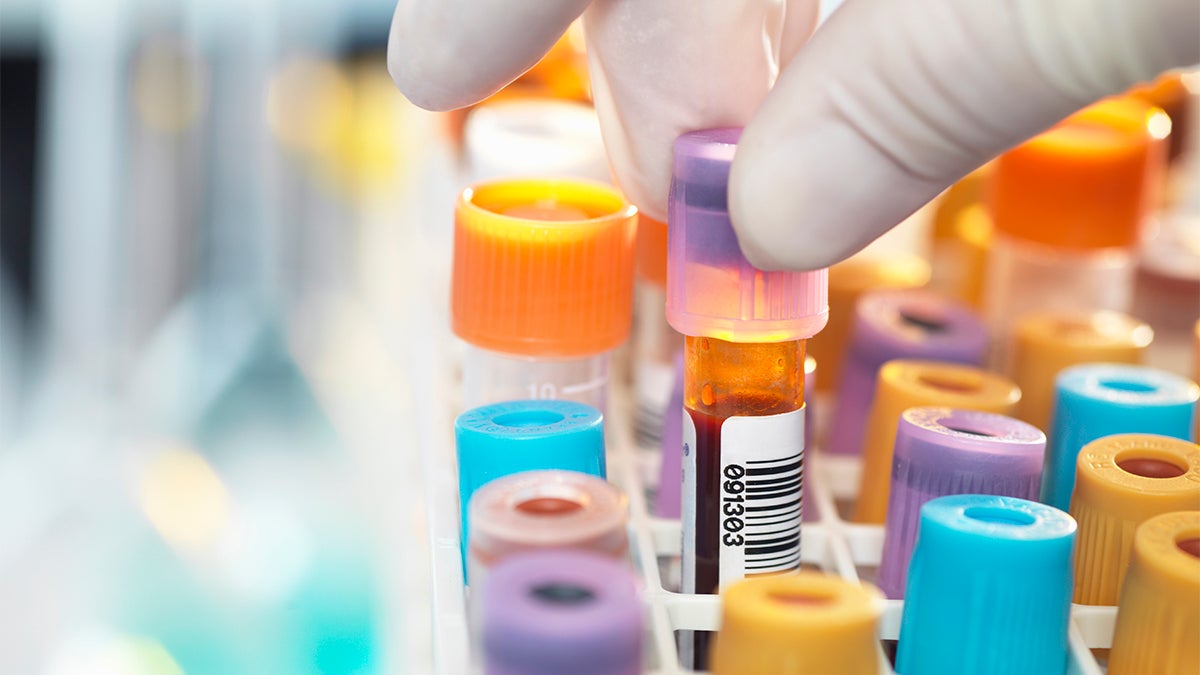Blood test results could hold the answers to maximizing performance

Since the Health Insurance Portability and Accountability Act of 1996 was enacted to protect the health data of individuals, a debate has arisen whether and to what extent it applies to professional athletes.

With technological advances allowing for the increasing use of biometric data, particularly in sports, the law’s application is being called into question again.
The Department of Health and Human Services declared in 2002 the law does apply to athletes, but that judgment has not prevented the exposure of player’s medical data.
Perhaps the most notable occurrence is the leak of Jason Pierre-Paul’s records to ESPN reporter Adam Schefter following a severe hand injury sustained in a Fourth of July fireworks accident in 2015. Paul was set to sign a contract extension, but the offer was withdrawn following the release of the details, which included Pierre-Paul’s loss of a finger.
The reveal of Paul’s medical data came after the fact.
Thanks to scientific and medical advancements, teams now collect player health data in real time in an effort to maximize future performance and minimize injuries.
The NBA’s Dallas Mavericks contracted Irish company Orreco to create player-specific health, exercise and diet plans for players. The data is collected via blood sample and tracks indicators such as oxidative stress, the body’s natural ability to fight tissue damage, and white blood cell counts, an indicator of oncoming illness.
To prevent another dispute similar to Pierre-Paul’s, the NBA and the players association included in their most recent collective bargaining agreement language that medical findings cannot influence future contract negotiations.
The Health Insurance Portability and Accountability Act states employers are not allowed access to employee medical data without the employee’s prior approval, and the Mavericks have given players the option to decline to participate in Orreco’s testing.
However, all but one player uses it.
Medical professionals are skeptical of the methods and benefits.
Dr. Annikar Chhabra of the Mayo Clinic says it is too early to determine how effective the use of biomarkers are. “The concept is excellent,” Chhabra said. “But there is no literature to prove it works.”
Until more studies are conducted, there is no definite way of proving the effectiveness, but that also becomes a challenge due to high costs. The Mavericks pay approximately $10,000 per player on a 15-man roster. In order to conduct an accurate study, the number of people needs to be much bigger.
Another difficulty is identifying what markers determine when an athlete is at risk for injury. “Everybody's stress level baseline is different,” Chhabra said. “What do you do with the data?”
Even without definitive proof, Chhabra says using biomarkers will continue to grow in popularity. “A lot of teams are going to start using it,” he said. “They want to avoid falling behind. This is will become a trend. Whether or not it works will take years to find out.”
Despite such skepticism, the Mavericks are not the only team to use Orreco’s services. The New York Knicks do as well, as do two MLB teams. The NFL is venturing into biometrics as a way to increase player performance.
The NFL Players Association signed a deal with WHOOP, makers of a wearable device that tracks strain, recovery and sleep patterns. A device was distributed to every NFL player and is given each rookie. Players retain all of the rights to their data, and are given the option to commercialize it if they so choose.
However, the same rights and options do not exist for users of all biometric data providers or their affiliates, meaning their data can be used and sold by companies without their approval or knowledge.
The commercialization of biometric data is expected to expand as more states legalize sports gambling. The four major American sports leagues filed a court brief citing the potential for misappropriation of biometric data by fantasy sports websites, such as FanDuel. The brief was a response to a case in Indiana regarding use of player names, images and statistics without consent. Biometrics fall under similar privacy laws as well as HIPAA.
However, FanDuel attorneys argue the dissemination of and potential profit from biometric data falls under the First Amendment protection of newsworthiness.
Regardless of the outcome of the current legal wrangling, it is clear that as biometric data expands, so does the curiosity of those who can benefit from it, whether that is players, teams, gamblers or even the people who collect it.
Ryan Sharp is a senior sports journalism student at Arizona State University.
Related Articles
As science, technology gather more biometric data, who owns the information?
Getting a CLEAR picture of biometric data in sports business
Lawson Craddock shows the toll of the Tour de France with Whoop
Sports betting and biometrics will push the publicity rights envelope
Game-changing NFL ball tracking data will be shared league-wide
Root, root, root for the home team while they mine your data
Wearable technology moving from the track to the bedroom
Wearable technology now knows if you are a candidate for diabetes


